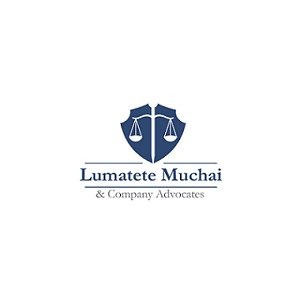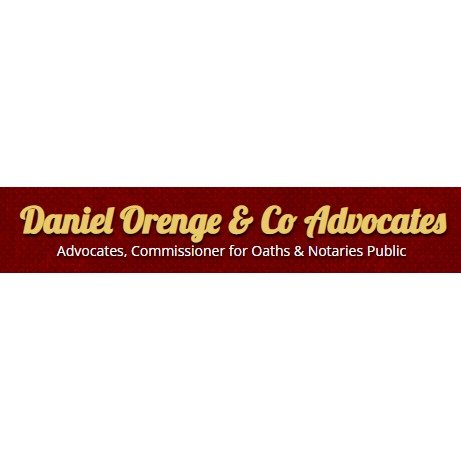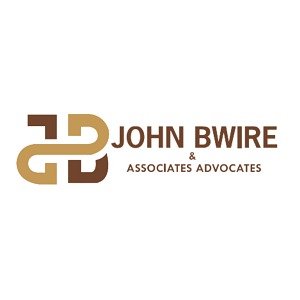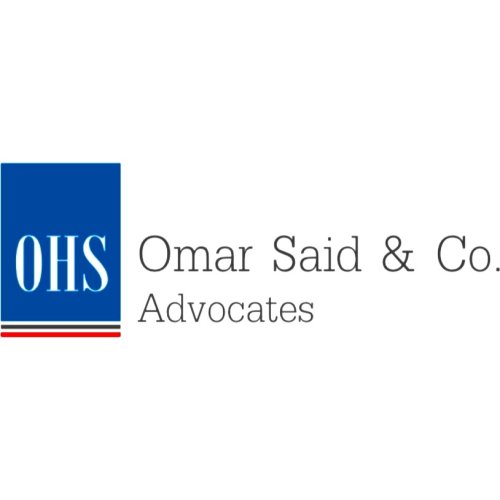About Conveyancing Law in Mombasa, Kenya
Conveyancing refers to the legal process of transferring property ownership from a seller to a buyer. In Mombasa, Kenya, this process is governed by a combination of statutes, regulations, and established legal practices. The process requires meticulous attention to documentation, verification of property titles, compliance with land laws, and the proper registration of documents with relevant authorities. Conveyancing is an essential aspect of the property market in Mombasa, whether for residential, commercial, or industrial developments.
Why You May Need a Lawyer
Engaging a qualified conveyancing lawyer in Mombasa is highly advisable for several reasons. Common situations where legal assistance becomes critical include:
- Buying or selling land and buildings
- Verifying the ownership and authenticity of property documents
- Drafting or reviewing sale agreements and transfer forms
- Managing risks of fraud or disputes over boundaries and ownership
- Handling property transactions involving succession, inheritance, or corporate ownership
- Guidance through government approval processes and stamp duty requirements
- Resolving encumbrances or issues such as caveats and liens affecting property transactions
- Advising on tax implications and compliance requirements
Having a legal expert on your side ensures that your interests are well protected and that the transaction proceeds smoothly in accordance with the law.
Local Laws Overview
Conveyancing in Mombasa is governed by several pieces of legislation and regulatory frameworks. Some of the most relevant include:
- Land Registration Act - Outlines procedures for the registration of land and interests in land.
- Land Act - Regulates land administration and deals with issues like transfer, leases, and charges on land.
- Law of Contract Act - Dictates requirements for valid property sale agreements, which must be in writing and witnessed by a licensed advocate.
- Stamp Duty Act - Mandates payment of stamp duty on transfer documents before registration.
- Physical Planning Act - Relates to planning and development approvals required from local authorities prior to certain property transactions.
- Land Control Act - Governs consent requirements for transactions involving agricultural land.
Key stages in the conveyancing process in Mombasa often include due diligence, preparation and signing of agreements, payment of requisite taxes and fees, obtaining consents, and registration of the transfer at the Lands Registry.
Frequently Asked Questions
What documents are needed for property transfer in Mombasa?
You typically need the original title deed, identification documents for both parties, a sale agreement, consent from relevant authorities, current land rates clearance, and completed transfer forms.
How long does the conveyancing process take?
On average, a straightforward conveyancing transaction in Mombasa can take about 60 to 90 days, depending on how quickly documents are processed and consents are obtained.
What is the role of a conveyancing advocate?
A conveyancing advocate guides you through every step, conducts due diligence, drafts and reviews documents, ensures compliance with all legal requirements, and represents your interests.
Are there taxes involved in property transactions?
Yes. The main taxes are stamp duty, capital gains tax, and payment of land rates or rent arrears. Stamp duty is usually paid by the buyer, while capital gains tax and any outstanding rates are settled by the seller.
What are common risks in the property transfer process?
Risks include fraudulent dealings, unclear title, undisclosed encumbrances, mistaken boundaries, and failure to obtain required consents. A lawyer helps mitigate these risks.
Can foreigners own property in Mombasa?
Non-citizens and foreign entities are generally restricted to leasehold interests, usually up to 99 years, and are subject to certain limitations under Kenyan law.
Do I need consent for all property transactions?
Consent from the Land Control Board is necessary for transactions involving agricultural land, lease extensions, and some subdivisions to ensure compliance with regulations.
How is land ownership verified?
Ownership is verified through official searches at the Lands Registry, which confirm the registered owner and reveal any encumbrances, caveats, or restrictions on the property.
What happens after all documents are signed?
After signing, the documents are lodged for assessment and payment of stamp duty, after which they are submitted for registration. Once registered, the new owner receives a title deed or lease certificate.
Who pays legal fees in a property transaction?
Typically, each party pays their own legal fees, but this can be agreed upon by the parties involved. Legal fees are regulated, and advocates generally charge according to the value of the property being transferred.
Additional Resources
If you require more information or assistance regarding conveyancing in Mombasa, the following resources may be helpful:
- Ministry of Lands and Physical Planning
- Mombasa Land Registry Office
- Law Society of Kenya (LSK) - Mombasa Chapter
- Mombasa County Government Lands Department
- Kenya National Chamber of Commerce and Industry (Local chapter)
These bodies provide guidance on procedures, resolve queries about land transactions, and offer platforms for verifying professional credentials of advocates handling your conveyancing.
Next Steps
If you are considering buying, selling, or transferring property in Mombasa, it is crucial to consult a qualified conveyancing lawyer. Here is how to proceed:
- Identify and engage an experienced advocate with a solid background in property law.
- Prepare all necessary documentation, including your identification, property details, and any prior agreements or correspondence.
- Discuss your objectives and any specific concerns with your lawyer.
- Let your lawyer guide you through due diligence, drafting, negotiating, and lodging documents with authorities.
- Ensure all taxes and fees are properly settled to avoid delays or disputes.
- Obtain regular updates from your lawyer during the process and request copies of all filed documents for your records.
Working with a legal professional throughout your conveyancing process will help you avoid common pitfalls, ensure compliance with all regulatory requirements, and safeguard your investment in Mombasa’s real estate market.
Lawzana helps you find the best lawyers and law firms in Mombasa through a curated and pre-screened list of qualified legal professionals. Our platform offers rankings and detailed profiles of attorneys and law firms, allowing you to compare based on practice areas, including Conveyancing, experience, and client feedback.
Each profile includes a description of the firm's areas of practice, client reviews, team members and partners, year of establishment, spoken languages, office locations, contact information, social media presence, and any published articles or resources. Most firms on our platform speak English and are experienced in both local and international legal matters.
Get a quote from top-rated law firms in Mombasa, Kenya — quickly, securely, and without unnecessary hassle.
Disclaimer:
The information provided on this page is for general informational purposes only and does not constitute legal advice. While we strive to ensure the accuracy and relevance of the content, legal information may change over time, and interpretations of the law can vary. You should always consult with a qualified legal professional for advice specific to your situation.
We disclaim all liability for actions taken or not taken based on the content of this page. If you believe any information is incorrect or outdated, please contact us, and we will review and update it where appropriate.

















